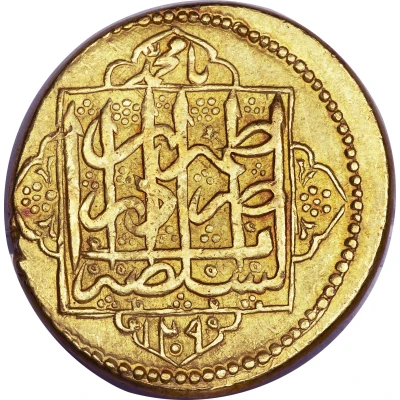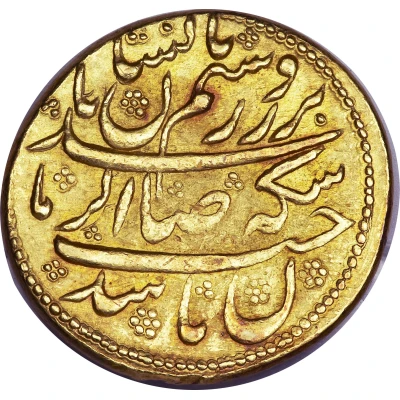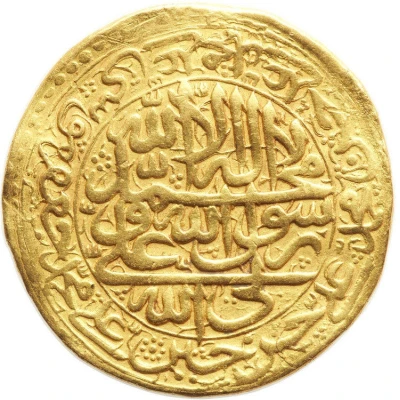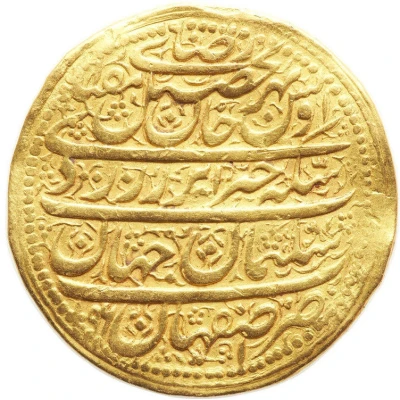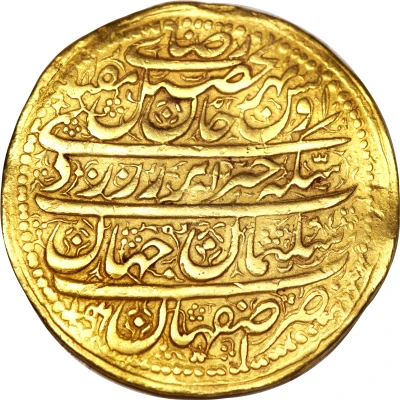
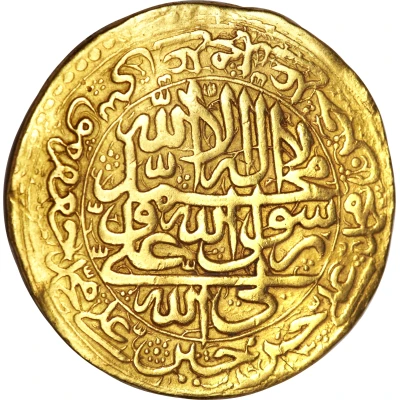

© Heritage Auctions
16 Ashrafi - Solayman Safavi Isfahan
1096 (1685) year| Gold | 56.37 g | - |
| Issuer | Iran |
|---|---|
| Shah | Suleiman I (1668-1694) |
| Type | Non-circulating coin |
| Year | 1096 (1685) |
| Calendar | Islamic (Hijri) |
| Value | 16 Ashrafi (768) |
| Currency | Shahi (1501-1798) |
| Composition | Gold |
| Weight | 56.37 g |
| Shape | Round (irregular) |
| Technique | Hammered |
| Demonetized | Yes |
| Updated | 2024-10-05 |
| Numista | N#62365 |
|---|---|
| Rarity index | 95% |
Reverse
Script: Persian
Lettering:
لا اله الا الله
محمّد رسول الله
علی ولی الله
علی حسن حسین علی محمد جعفر موسی علی محمد علی حسن محمد
Comment
These magnificent multiple Ashrafi gold coins were copied from those of the Ottomans and, ultimately, from multiples of the Venetian ducat. They were not intended as currency, but for display as magnificent gifts from the Shah. Ladies would use them as a means of family savings while men, particularly statesmen and soldiers, would wear them as a treasured sign of royal approval. Most of those that have survived, including this one, show signs of having been mounted for suspension.Interesting fact
One interesting fact about the 16 Ashrafi - Solayman Safavi (Isfahan) 1096 (1685) coin from Iran is that it features a unique blend of Islamic and Safavid-era designs, showcasing the rich cultural heritage of the region. The coin's obverse side features an inscription in Persian that reads "Sikka-e-Safavi" (Safavid coin) and "Sultan-e-Boozarg" (Great Sultan), while the reverse side features an intricate design of interlocking circles and geometric patterns, which was a hallmark of Safavid-era art and architecture. This coin is a rare and valuable example of the artistic and cultural achievements of the Safavid dynasty, which ruled Iran from the 16th to the 18th century.
